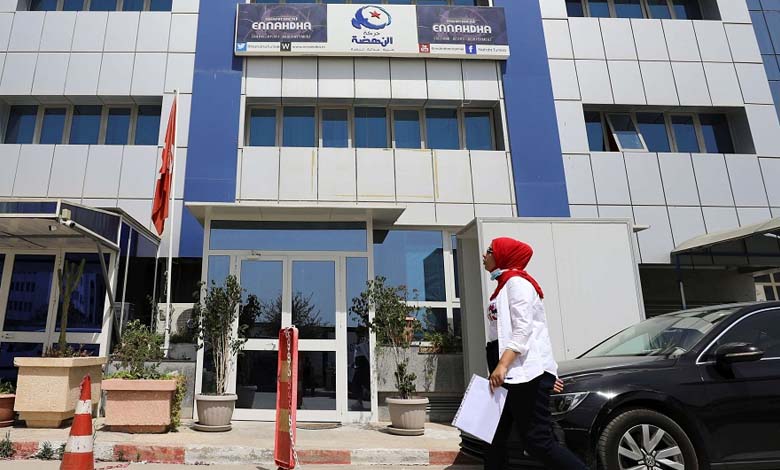New Maneuver: Ennahdha (Muslim Brotherhood) in Tunisia explores changing its name… Why?

After retracting the idea of boycotting and deciding to participate in the upcoming presidential race, the Ennahdha movement is maneuvering once again. It is heading towards changing its name to suggest a radical change before the presidential elections, aiming to reconnect with the Tunisian street, where the name Ennahdha has become associated with the dark decade.
The Secretary-General of the movement, Ajmi Lourimi, did not rule out changing the party and Shura Council’s name, confirming the proposal within the content preparation committee for the upcoming conference. In a late Sunday post on his personal Facebook account, he explained that this proposal does not require internal voting unless there are multiple alternative names for the current party name. In that case, opinions can be surveyed to determine which names are more accepted and supported.
Observers question whether the anticipated changes were discussed in coordination with the movement’s leader, Rached Ghannouchi, who is in prison pending investigations in several cases, and the duration of his detention may extend.
It is worth noting that the previous election cycles have exhausted the movement, causing several divisions. Some of its leaders have split, and dozens have sent a message urging Ghannouchi to voluntarily resign from the movement’s presidency and remain as a symbolic figure. However, he refused and insisted on staying at the helm of the Ennahdha movement.
Political circles close to the ongoing movement within Ennahdha believe that the name change is driven by maneuvering on two fronts: first, to alleviate pressure from the authorities, media, unions, and the Tunisian street, which continues to hold it responsible for the difficult economic situation. Second, to use the name change as a factor in an escalating internal conflict between a pragmatic faction seeking to appease the authorities by all means and avoid security and legal confrontation, and another faction calling for escalation with the authorities, aligned with Rached Ghannouchi, the imprisoned leader, as reported by the London-based newspaper Al-Arab.
This is not the first time the movement has changed its name. It changed from the Islamic Group in June 1981 to become the Islamic Tendency Movement. In February 1989, it changed its name again to become the Ennahdha Movement, as part of a plan to force the late President Zine El Abidine Ben Ali’s regime to recognize it as an open political party.
Over half a century, the Ennahdha movement, under its various names, has failed to convince Tunisians that it is a civil party and not a religious Brotherhood. The movement has not succeeded in breaking the barrier of fear between it and the society that continues to adhere to the values of the national state established by the late leader Habib Bourguiba, especially the Family Code that prohibits polygamy and adopts divorce according to civil law.












